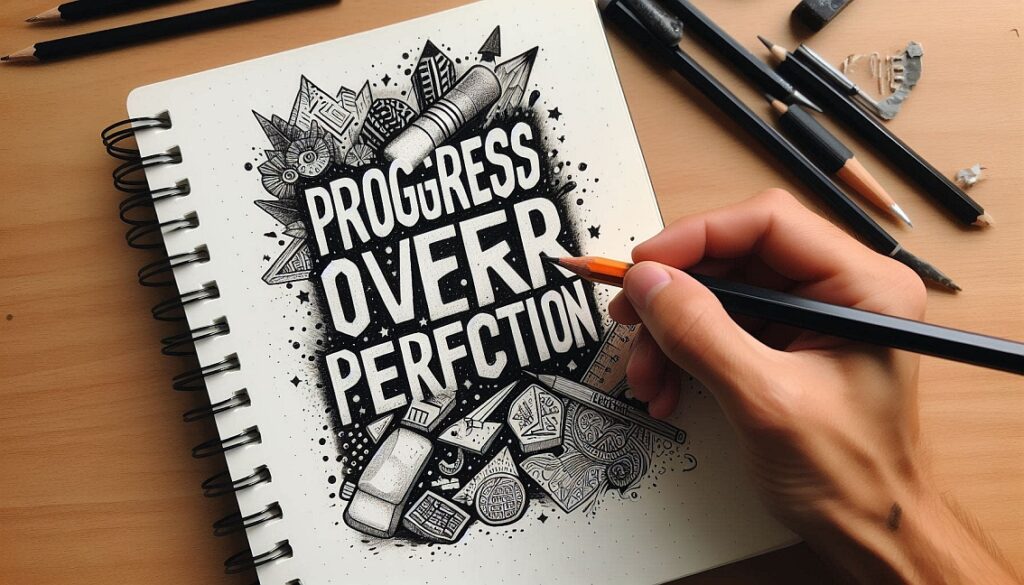You’ve probably noticed something about successful people. They don’t just work hard sometimes – they show up every single day. Take Sarah, the owner of a small coffee shop in Boston. Five years ago, she opened her doors at 5 AM every morning, no matter what. Rain, snow, or sunny days. Now she runs three locations. Or Mike, who started running just ten minutes daily. He didn’t miss a day for six months. Now he finishes marathons. Then there’s the countless other people who are the opposite – artists who start a painting but never finish it, musicians who practice diligently for a week, then abandon their instrument, entrepreneurs who launch a business with great enthusiasm, only to let it wither away. The common thread? A lack of consistency.
No doubt the really successful people have their share of natural talent, luck, and being in the right place at the right time. But even then they rarely become successful overnight. Their achievements came from the small efforts which they repeated day after day. It isn’t necessarily exciting or glamorous, but it built a solid foundation for achieving their goals. This regular effort and commitment is what truly drives success.
Why does consistency hold so much power? What are the real benefits of staying consistent? How can you incorporate it into your daily life to achieve your own goals? Consistency, it seems, is the unsung hero of success. It’s the steady drip that fills the bucket, the gentle push that moves the mountain. It’s about showing up, day in and day out, putting in the work, even when you don’t feel inspired. It’s about practicing your craft, honing your skills, and learning from your mistakes.It helps you build momentum, stay focused, and improve over time. It’s not about making huge leaps all at once but taking small steps day by day. Think about learning a new language. If you practice a little each day, you’ll improve much faster than cramming once a week.

Why Consistency Beats Raw Talent
But how do we cultivate this elusive quality? How do we break free from the cycle of starting and stopping? Raw talent can only take you so far. Just look at professional sports. Many naturally gifted athletes never make it to the top because they rely too much on their talent. Meanwhile, players who show up for extra practice every morning end up becoming stars.
Consistency is key that fosters discipline. Discipline is the ability to stick with something, even when you don’t feel like it. By being consistent, you train yourself to overcome the temptation to give up. This discipline becomes a powerful tool in achieving long-term goals.
How to Build Consistency in Daily Life
The first step is to set realistic goals. Don’t aim for perfection; aim for progress. Break down your big goals into smaller, manageable steps. Small actions build up over time, like saving $5 every day. After a year, you have $1,825. After five years, you have $9,125. Each day’s action might feel tiny, but the total becomes huge.
Develop a routine that fits your lifestyle. Consistency thrives in routines. Determine when and how you’ll work on your goals each day. Make sure the routine is realistic so you can stick with it. Find a time of day when you’re most productive and dedicate that time to your goals. Whether it’s early morning, late night, or somewhere in between, find a schedule that works for you and stick to it.
Remember, consistency isn’t about being perfect; it’s about being persistent. There will be days when you don’t feel motivated, when you want to give up. But those are the moments when you need to dig deep and keep going. Think of it like training for a marathon. You don’t run 26 miles on your first day. You start with a short jog, gradually increasing the distance and intensity over time. The same principle applies to achieving your goals.
Track your progress. Keeping track of your efforts can be motivating. Make a checklist or a journal where you can log your daily activities related to your goals. Seeing how much you’ve done can inspire you to keep going and reinforce the habit of consistency.

Overcoming Challenges to Consistency
It’s important to celebrate your successes, no matter how small. Every step forward, every milestone reached, is worth acknowledging. Positive reinforcement can help you stay motivated and keep you on track. Your surroundings either help or hurt your consistency. Want to exercise every morning? Put your workout clothes next to your bed. Need to write daily? Set up a desk that’s only for writing. When things are easy to start, you’re more likely to do them.
Remember, consistency isn’t about being perfect; it’s about being persistent. There will be days when you don’t feel motivated, when you want to give up. But those are the moments when you need to dig deep and keep going. Missing one day makes some people give up completely. They think, “Well, I broke my streak, so I might as well quit.” This black-and-white thinking destroys more good habits than almost anything else.
Remember this rule: Never miss twice. Missing one day is a mistake. Missing two days is the start of a new habit. Get back on track immediately after a miss. Success isn’t about dramatic changes or amazing talent. It’s about showing up every day, doing the work, and trusting the process. The path might be boring, but the results are extraordinary.

Finally. Every expert started as a beginner. Every successful business started with one sale. Every healthy person started with one good choice. Your consistency, even in tiny actions, builds the foundation for big achievements.
Start small. Stay steady. Success will follow.

Leave a Reply